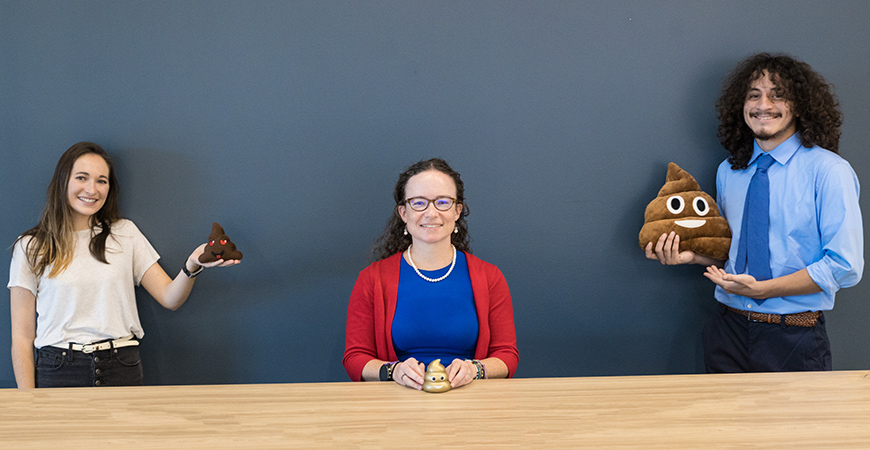
As the number of cases of COVID-19 surge again globally as a result of the delta variant, world leaders are searching for ways to make more informed decisions on how to contain the pandemic. Researchers at UC Merced and Michigan State University (MSU) know what can provide early signs of the virus and help with critical decisions — sewage.
Professor Colleen Naughton and colleagues at MSU are developing the Wastewater SARS Public Health Environmental Response, or W-SPHERE, a global center for data and public health use cases on SARS-CoV-2 in wastewater. Other collaborators include KWR Water Research Institute and Venthic Technologies. W-SPHERE is being developed as part of a larger wastewater surveillance project led by PATH, a global health nonprofit.
“I’m extremely honored to be a part of this collaboration that uses data we collected from the COVIDPoops19 global dashboard of wastewater monitoring sites we launched with COVID-19 seed funding from the Center of Information Technology Research in the Interest of Society (CITRIS),” Naughton said.
W-SPHERE is part of the Global Water Pathogen Project (GWPP) a resource on pathogens supporting sanitation and safe water and promoting quantitative information via monitoring of sewage, fecal sludges and freshwaters to inform public health measures. This online data repository and global map is now open for access and sharing across the globe.
“We know that early after being infected with SARS-CoV-2, both people with symptoms and those without excrete the virus in their feces, which ends up in wastewater,” said Joan Rose who is the MSU Homer Nowlin Endowed Chair in Water Research and a professor in the Departments of Fisheries and Wildlife, and Plant, Soil and Microbial Sciences.
“This is why sewage provides a real-time view of trends in community infection earlier than other surveillance systems,” Rose said. “This can benefit society greatly because public health officials can be overwhelmed when monitoring individuals to obtain good data supporting vaccination strategies, implementation of safety measures and policy decisions, such as on operating schools and other businesses.”
W-SPHERE’s interdisciplinary team of environmental virologists and public health specialists, as well as engineering and IT professionals present global data visualized on dynamic maps on a global and country scale with options to zoom in regionally at a spatial level, protecting the anonymity of the facility and enable examination of the spatial and temporal trends of SARS-CoV-2.
Currently, over 2,691 cities and counties across the world, scientists and utilities are monitoring wastewater for SARS-CoV-2, or have communicated that they will be setting up for monitoring soon. The goal is to continue to grow the W-SPHERE, adding more public databases in the next six months.
The W-SPHERE research team at UC Merced includes Krystin Kadonsky, an environmental systems graduate student, and Clara Medina, an environmental engineering undergraduate researcher.



